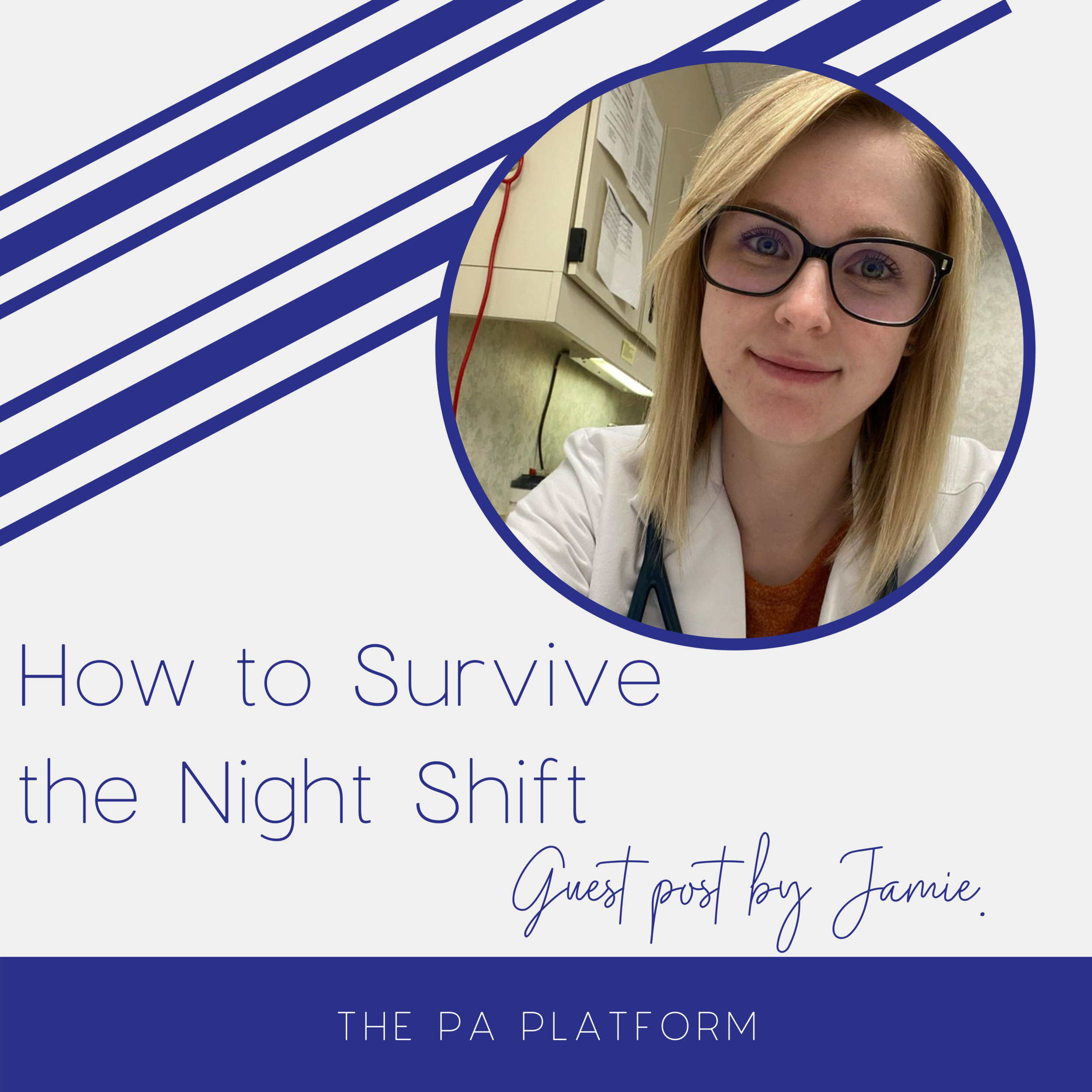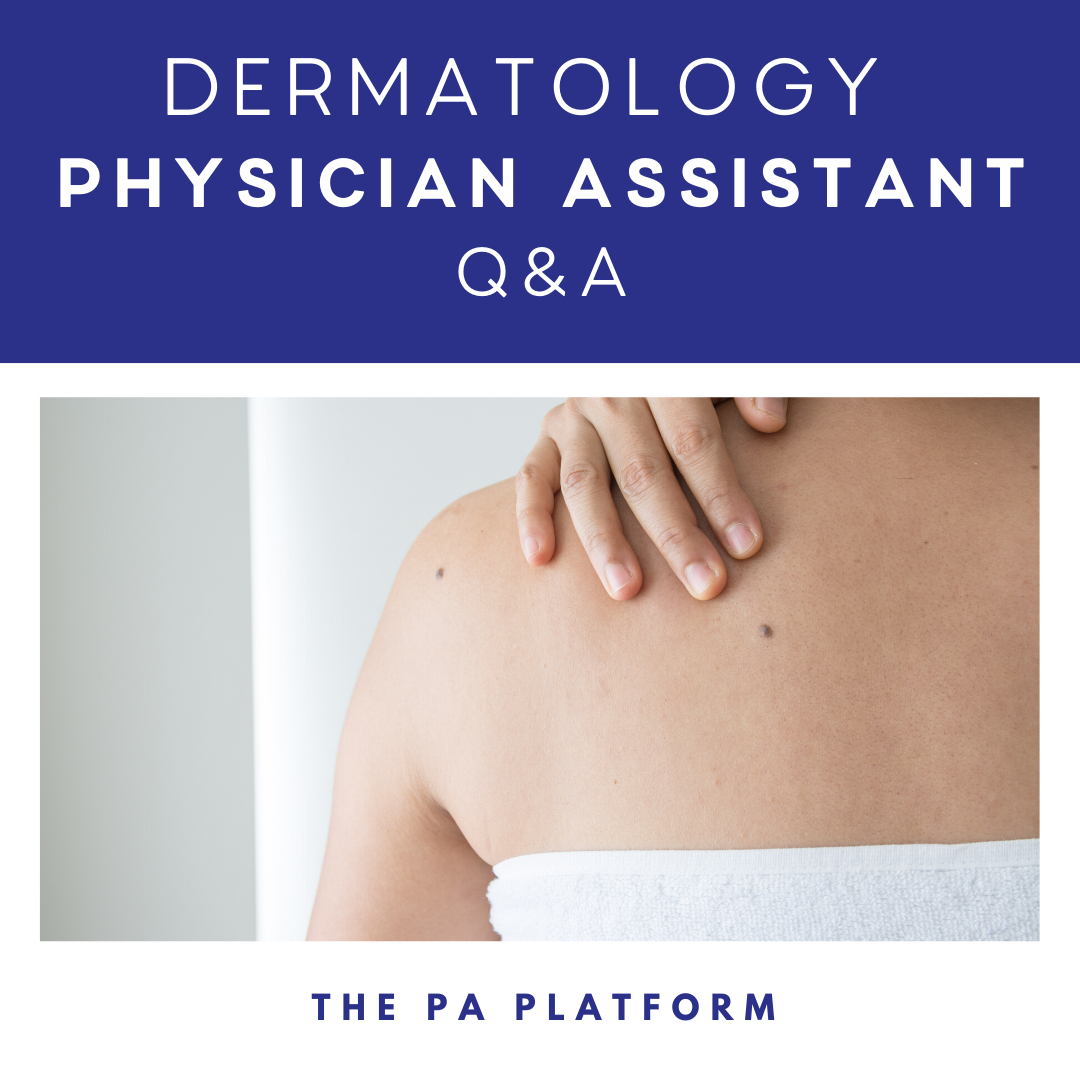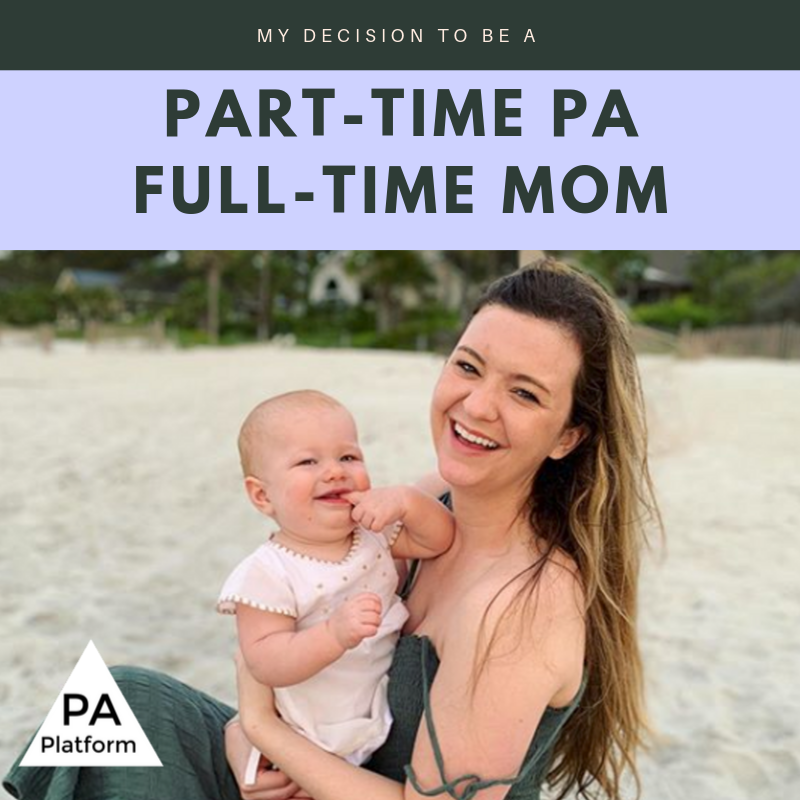About this time last year, I was nervously getting ready to start my final 2 rotations at the dermatology office that so graciously decided to take me on as a new grad. Looking back, that job search was a bit exhausting and honestly there were some tears involved. I love my job, and I feel very fortunate as this is my first position, but I thought it may be helpful to share some of the things I learned along the way. As a new grad, you're excited and ready to get out into the working work, but getting there takes some effort.
So congratulations if you just graduated/are graduating soon, or if you are finding yourself looking for a new position and leave a comment below if you have any other tips!
What to Look For:
So when looking for a job, I've read multiple theories and recommendations about what you should focus on. You have to decide what's important for you personally. It seems to me the more essential aspects of a Physician Assistant job are - location, specialty, supervising physician, salary/benefits.
You need to rank these factors in order of importance to you. A year on rotations should have helped to make it a little more clear what your priorities are. I decided that having a great supervising physician and doing something I loved were more important to me than salary. In my opinion, I would much rather wake up and want to go to work than dread my job or who I'm going to work with.
Location is important if you have an area you really love or family you want to be near. I was raised in Augusta and went to PA school in Augusta. My husband is still in medical school here, so that was an obvious choice for me. If location isn't as important to you, it may be a great opportunity to try out a new place and get some experience so later you can find your dream job in your dream location.
Rotations give you a good idea of what areas you do and don't want to work in. The main questions that came up for me were sick vs not sick and appointment vs walk-in and procedures vs no procedures and continuity of care. I'll explain that a little more because I didn't really get it until I was in the field. When it comes down to specialty as well, I will mention that it seems any experience you have makes you very valuable for other fields, so I think it is much better to have an open mind when starting your job search.
Sick vs not sick - Some specialties you see "sick" patients, which I consider the ones that have things you could catch. This includes pediatrics, family medicine, internal medicine, urgent care, and ER. Other specialties like dermatology, pulmonology, cardiology, hem/onc, GYN, and lots of others have patients that may have diseases that make them very sick, but they aren't going to cough on you so you could catch it. Personally, I didn't love seeing the flu and strep throat all winter long. And when other students say you should plan on getting sick on your pediatrics rotation, it's absolutely true. (And sidenote - go to the doctor or health clinic when you start feeling sick, and not the last day of your rotation, so maybe you can avoid being diagnosed with pneumonia like me.) A lot of the patients I see in dermatology have very real, serious disease that affects their lives, so I definitely still feel like I'm helping patients even though I'm not seeing the acutely "sick" ones.
Appointment vs walk-in - If you're working in private practice, you will likely have a schedule of patient appointments that you are expected to stay pretty much on time with. If you are good at time management and a fairly quick decision maker, this should be fine for you. The frustrating thing about having a set schedule is that it can easily get thrown off by late or complicated patients. It's personally very important to me to stay on time out of respect for my patient's time, but there are definitely days where it seems like everyone is complicated, so they need more time (and I'm becoming a little more okay with that.) Areas like urgent care, emergency med, or being in the hospital will mean that your patients just show up or are already there. This has it's advantages because you don't have to worry as much about the late patients or your own punctuality, and it's ok if you need to take longer with some patients. The disadvantages to not knowing your schedule for the day mean it's a bit of a surprise, and you can't predict as well if your day will be slow or hectic.
Procedures vs no procedures - This is pretty straightforward, but if you loved surgery and getting to do things with your hands, then you probably want to do something where you can do procedures. I would say in most specialties there's at least a possibility of being able to do some hands-on stuff. Specialties that are more lab-based (ex - endocrinology) may not have as much going on there. General or family practice is a bit of a toss-up because there are some that do their own injections and even biopsies, and then other practices that don't do any of this. So that's just something to consider when looking for what field you want to be in.
Continuity of Care - It was really important to me that I know how my patients are doing after I treat them, and I wanted to be able to build relationships with my patients. You may get a little bit of this in urgent care or emergency med, but usually when you recognize a name there it's not a good thing.
Now on to supervising physician(s). It's much easier to work under one SP, but sometimes if you're looking at working for a large practice or hospital, that's not going to be the case. I cannot stress how much having a supportive SP who is willing to adequately train and teach you is important. My SP will stop what she's doing, even if she's running behind, to come see a patient if I ask her to. You also want a SP that will support your decisions, and although they may not agree and will tell you that in private, they should never throw you under the bus in front of a patient. There's a saying that if a patient sees a bad doctor, they'll find another doctor, but if they see a bad PA, they'll never see another PA. I think that's true because most patients still have a little bit of a difficult time understanding what a PA is and what we can do, so they are quick to lose faith if something happens.
Now for salary and benefits. I have a much different opinion on this than other PAs from things I've read and discussions I've had. I definitely believe in not being lowballed, but I also believe in being willing to accept a fair offer, especially as a new grad. It is going to take both money and time, and probably mistakes, to train you to be a good PA. And you have to weigh the worth of location, supervising physician, and experience you will gain. So really look at everything involved, and not just the number. Is there a bonus structure in place? That can potentially make a huge difference. There's a lot out there that says you should never take a job if it's less than the national average and that new grads should be making 90K+. I think this is possible, but is not necessarily the norm, so you have to be realistic. Also, consider vacation/sick time, CME days and money, insurance, retirement, and just quality of life.
I recently sat down with Lianne Hahn for a three part series on my Youtube channel where we discuss Resumes and CVs for PA School and Physician Assistant Jobs, Interviewing for PA Jobs, and Contracts and Negotiations for Physician Assistants. Make sure to check out the series and subscribe to The PA Platform on Youtube!
What are some of the things you are looking for in a job? What helped you make the decision to take a certain job?














